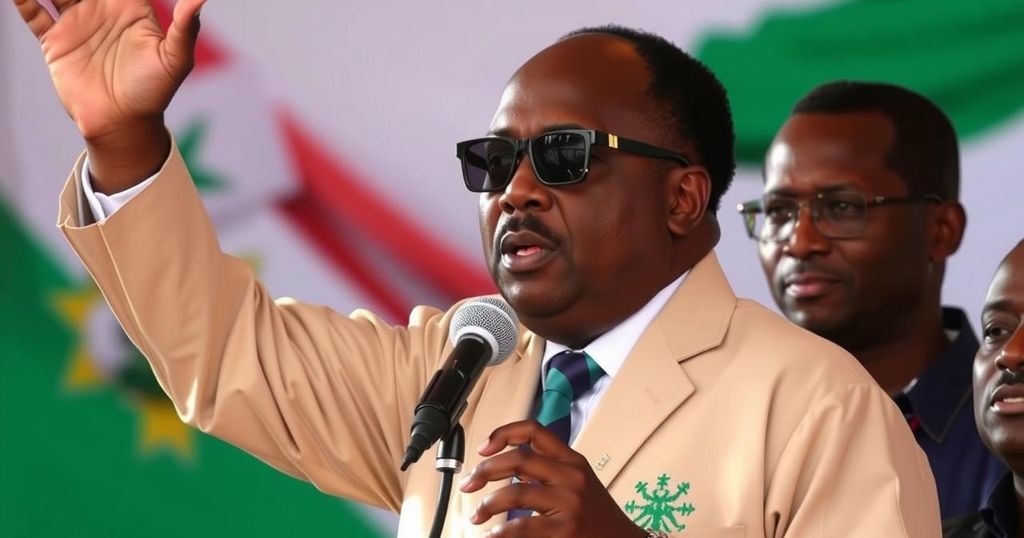World news
AFRICA, AHMED BARTCHIRET, AP, BOKO HARAM, CHAD, CONSTITUTIONAL REFORMS, DEBY, DEMOCRACY, DJAMENA, ELECTIONS, ELECTORAL COMMISSION, EUROPE, FRANCE, GOVERNANCE, GOVERNMENT, LAKE CHAD, MAHA, MAHAMAT IDRISS DEBY, OPPOSITION, PATRIOTIC SALVATION MOVEMENT, SUCCES MASRA, TRANSFORMERS
Li Chen
0 Comments
Chad’s Ruling Party Secures Majority in Boycotted Parliamentary Election
Chad’s ruling Patriotic Salvation Movement party won the majority in the parliamentary elections, claiming 124 of 188 seats amid a boycott by major opposition parties, which deemed the election a “charade.” The voter turnout was reported at 51.5%. This election is seen as crucial for President Mahamat Idriss Deby as he aims for decentralization in governance, though concerns about electoral credibility remain pervasive.
In the recent parliamentary elections in Chad, the ruling Patriotic Salvation Movement party emerged victorious, securing 124 out of 188 available seats. The elections, characterized by a voter turnout of 51.5%, took place in the context of a significant political transition, marked by the absence of participation from the principal opposition parties, which labeled the electoral process a “charade.” These elections, the first in over a decade, are seen as crucial for consolidating the political authority of President Mahamat Idriss Deby, who assumed power following a military takeover in 2021 after the death of his father, the long-standing president Idriss Deby Itno. President Deby has positioned this election as a stepping stone toward greater decentralization of power in Chad, shifting authority from the central government to local governing bodies. However, concerns persist regarding the credibility of the electoral process, especially considering previous elections that faced criticism from observers for lacking integrity.
Chad has been undergoing a complex political evolution following the death of Idriss Deby Itno in 2021, who had ruled for three decades. His son, Mahamat Idriss Deby, seized power during a military coup and pledged to lead the country towards a democratization process. The recent elections represent a pivotal moment in this process, amidst ongoing security challenges, including insurgent activity by Boko Haram and strained relations with France. The absence of opposition parties highlights significant divisions within Chad’s political landscape, raising questions about the legitimacy of the ruling party’s victory.
The ruling party’s significant majority in Chad’s parliamentary election underscores the consolidation of President Mahamat Idriss Deby’s political power, particularly in light of the boycott from key opposition parties. The low turnout and critiques surrounding the election process further complicate the democratic promises made by the current administration. As Chad navigates internal and external challenges, the implications of this electoral outcome will likely impact its governance and the quest for broader political stability.
Original Source: abcnews.go.com




Post Comment